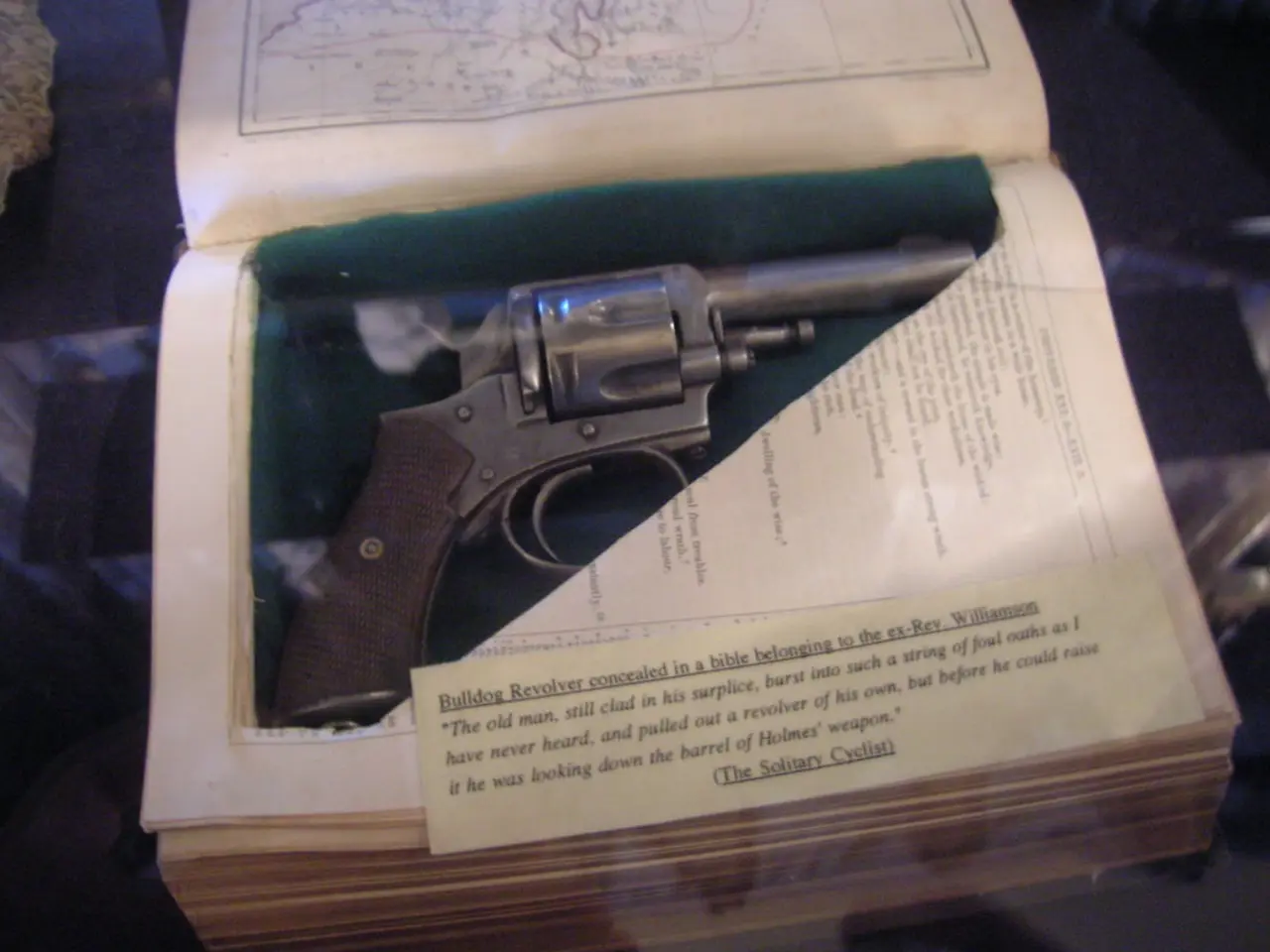Gun-wielding New York City suspect previously subjected to two mental health detentions in Las Vegas, with no implications for his lawful gun ownership rights
Nevada's Extreme Risk Protection Order (ERPO) law, enacted to prevent individuals in mental health crises from purchasing or possessing firearms, faces practical challenges in its implementation. While the law allows for the temporary removal of firearms from those who pose a danger to themselves or others for up to a year, its impact is limited due to a lack of training among law enforcement and infrequent application.
Under Nevada law, only those who have been adjudicated as mentally ill or involuntarily committed to a mental health facility by a court are automatically prohibited from purchasing firearms. Short-term emergency mental health holds, like 72-hour holds, do not by themselves restrict gun purchase rights unless they lead to court-ordered involuntary commitment. Concealed carry permits are also denied for five years following any mental health facility admission, voluntary or involuntary.
The ERPO law allows law enforcement, family, or household members to petition a judge to restrict access to guns for up to one year. However, awareness and training among Nevada's law enforcement are reportedly limited, leading to infrequent use of the red flag law despite known cases where its application could have prevented shootings.
In practice, the red flag law serves as a tool to prevent risky individuals from acquiring firearms, but its effectiveness depends heavily on enforcement action and awareness. As of 2024, Nevada courts issued only 28 ERPOs, compared to thousands per year in states such as California and Florida.
It is worth noting that emergency mental health holds in Nevada are not reported to the National Instant Criminal Background Check System (NICS) and would not show up in a background check. This means that individuals who have undergone such holds could potentially purchase firearms legally, as was the case with the gunman in a recent New York City shooting.
The gunman, identified as Shane Tamura, a 27-year-old man, was known to suffer from mental illness, specifically anxiety, depression, and bipolar disorder. Tamura was allowed to buy firearms legally, including the AR-15-style rifle used in the New York incident.
Some experts, such as April Zeoli, a gun violence researcher at the University of Michigan, argue that the use of ERPOs varies greatly depending on law enforcement training. Zeoli states that if a year-long ERPO had been issued for Shane Tamura after his last mental health hold last August, he would not have been allowed to buy the rifle he used in New York last month.
In an effort to address these challenges, Nevada's attorney general's office announced a program to pay for red flag law training for police and affected family members in 2022. This initiative aims to increase awareness and knowledge of the red flag law among those who can best utilise it to prevent potential tragedies.
However, not all law enforcement officials are on board with the red flag laws. Some sheriffs in other parts of the west have resisted using red flag laws, calling them a threat to gun rights. This resistance highlights the ongoing debate surrounding the balance between gun rights and public safety in mental health crisis situations.
In conclusion, while Nevada's red flag laws legally enhance the ability to restrict firearm access for individuals with mental health issues when a danger is demonstrated in court, practical barriers and limited application reduce their impact on preventing firearm purchases by these individuals. Improved training and awareness among law enforcement, as well as increased use of the red flag law, could potentially save lives in mental health crisis situations.
- Despite the need for preventing individuals in mental health crises from purchasing or possessing firearms, Nevada's Extreme Risk Protection Order (ERPO) law faces practical challenges in its implementation due to limited training among law enforcement and infrequent application.
- Under Nevada law, only those who have been adjudicated as mentally ill or involuntarily committed to a mental health facility by a court are automatically prohibited from purchasing firearms, but short-term emergency mental health holds do not restrict gun purchase rights unless they lead to court-ordered involuntary commitment.
- The ERPO law allows law enforcement, family, or household members to petition a judge to restrict access to guns for up to one year, but awareness and training among Nevada's law enforcement are reportedly limited, leading to infrequent use of the red flag law.
- The gunman in a recent New York City shooting, Shane Tamura, was known to suffer from mental illness but was allowed to buy firearms legally, including the AR-15-style rifle used in the New York incident.
- Some experts argue that the use of ERPOs varies greatly depending on law enforcement training, with a year-long ERPO potentially preventing individuals like Shane Tamura from purchasing firearms that they could use in shootings.
- In 2022, Nevada's attorney general's office announced a program to pay for red flag law training for police and affected family members to increase awareness and knowledge of the red flag law among those who can best utilize it to prevent potential tragedies.
- The ongoing debate surrounding the balance between gun rights and public safety in mental health crisis situations is highlighted by the resistance of some sheriffs in other parts of the west to using red flag laws, calling them a threat to gun rights.




